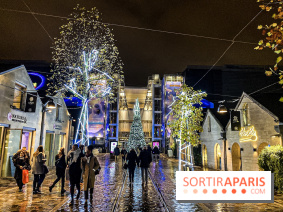Cristian Mungiu is back at the Cannes Film Festival! The director, who received a Palme d'Or in 2007 for his film 4 Months, 3 Weeks, 2 Days, is back in the official selection and presents R.M.N., a powerful film that shows the rise of extremism even in the villages of Transylvania.
With R.M.N., director Cristian Mungiu takes us to the heart ofRomanian immigration. The multi-ethnic village, which has been home to Romanian and Hungarian inhabitants for several generations, is being depopulated. The locals are leaving to work in Germany for better wages and the local factory owner is having a hard time finding new employees. In desperation, she finally accepts a grant from Europe on the condition that she hires foreign workers. Thus, three Sri Lankans arrive in the village and quickly become the target of the frightened locals.
The film is in competition in the official selection of the Cannes Film Festival 2022 and its release date in French cinemas is not yet known.
Synopsis:
A few days before Christmas, Matthias returns to his native, multi-ethnic village in Transylvania after leaving his job in Germany. He worries about his son, Rudi, who is growing up without him, about his father, Otto, who has remained alone, and he wants to see Csilla, his ex-girlfriend, again. He tries to become more involved in the education of the boy who has been left in the care of his mother, Ana, for too long and wants to help him overcome his irrational anxieties. When the factory that Csilla manages decides to recruit foreign employees, the peace of the small community is disturbed, and the anxieties spread to the adults as well. Frustrations, conflicts and passions resurface, shattering the semblance of peace in the community.
Criticism:
Cristian Mungiu offers us, for this selection 2022 a necessary film that highlights the rise of racism in communities yet already multicultural where everyone felt in their place and accepted.
Here, the director highlights the amalgam made by most Europeans between the Roma ( gypsy population with a bad reputation originating from Romania) and Romanians who try to earn an honest living. On several occasions the main character is called a gypsy, which is a big insult for him since the Romanians themselves condemn the bad actions of the Roma. In the village, they have managed to get rid of the Roma and are suspicious that they might be replaced by another population offoreigners whose customs they do not know.
The film highlights a scene in the village hall where each inhabitant is asked to present his or her arguments for or against welcoming foreign workers into the community and we see that everything is confused, everything is mixed up in their heads. Like many people, they are afraid of the other, they are afraid of the difference, they are afraid of what they do not know... and they are ready to fight to keep it that way. While they don't hesitate to go and work in Germany to earn more and are not ready to accept to work at the local wage, they get offended when others accept such conditions.
A film about immigration, about time passing and things changing, about the primitive fears of men, with the portrayal of strong and powerful women who do not let themselves be pushed around and are not afraid to confront their ideas with the opinions of others. As it is traditionally the case in Romanian culture, Art is very present in the film, especially music, with the beautiful cello melodies of Csilla.
Average duration
2 h
5 min















